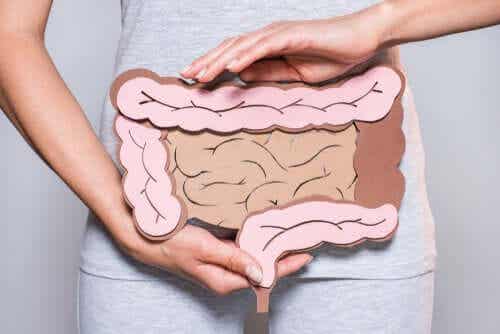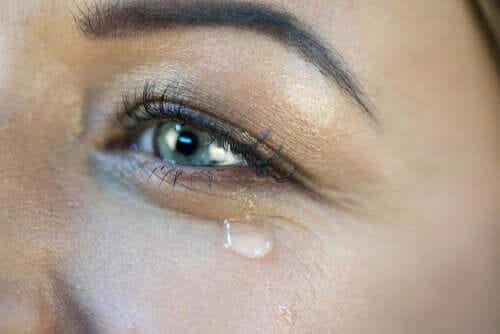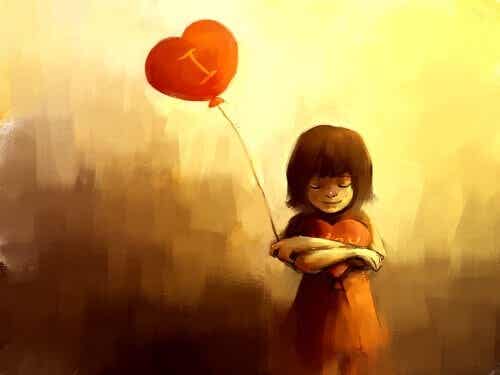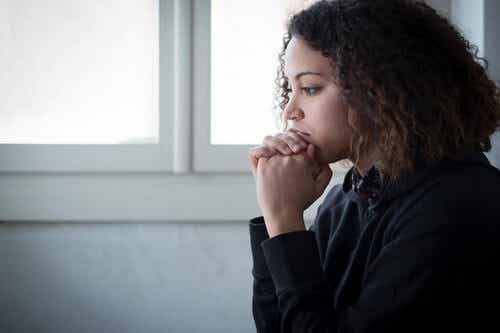"Why did I get through Covid and my family member didn't?", "Why did I barely have symptoms while others are dying?". There are many people who are starting to suffer from survivor syndrome in connection with the ongoing pandemic.

Written and verified by the psychologist GetPersonalGrowth.
Last update: 15 November 2021
More and more phenomena in the field of mental health have emerged in relation to the current context; not even psychology is able to predict exactly what effects could occur in the next few days. The sad consequences of the Coronavirus pandemic are manifesting day by day, and one of them is the sense of guilt felt by those who managed to survive COVID-19.
This news may surprise you. Whenever we hear about someone overcoming their illness, we feel a feeling of happiness and hope. A few days ago, the case of Alberto Bellucci, the 101-year-old Italian man discharged from intensive care to re-embrace his family, was made known. He feels lucky and his family is happy.
Still, not all COVID-19 survivors feel the same way. In many minds the idea of "Why am I alive and my father not?", "Why am I saved and my brother lost his life?", "Because I was lightly hit while others struggle for life attached to a respirator? ". Once again, as with any other crisis in life, everyone experiences the facts in a subjective way.
We must show ourselves sensitive to this reality. If this is happening right to you, don't hesitate to ask for help. First of all, it is essential to understand that we are faced with a habitual reaction in these contexts: it is the survivor syndrome. Let's find out why surviving COVID-19 can lead to guilt.
Surviving COVID-19 and guilt, what does it consist of?
We are not mistaken in stating that in the situation that is overwhelming us, anxiety is an almost constant presence that risks surfacing at any moment. Yet, not all of us experience and manifest it in equal measure.
There are those who cannot sleep all night. Who spends the day on the sofa, minimizing any activity other than watching TV series, eating or texting.
Others, on the other hand, exhibit exasperating hyperactivity, occupying their time in any way so as not to think. There are of course those who suffered from anxiety before, and finds himself fighting as best he can against a complex situation.
Well, among all the consequences of the Coronavirus there is one that is surfacing with an ever increasing frequency: the guilt of those who survived COVID-19. Let's see what it's about.
Why me? Pain and empathy for others
The more the days pass, the more we discover stories that will remain engraved in the personal and collective memory of many. Because this suffering affects everyone, because the pandemic does not look at borders, nationality or social class. It has installed itself in our lives by selecting its victims, most of them of advanced age, many with previous pathologies. Others, however, sanee with the whole life ahead.
Each of us is important and necessary. Everyone is needed. People with survivor syndrome exhibit feelings of guilt for several reasons. The hardest: having lost a loved one. In some couples affected by the disease, only one managed to survive Covid-19. There are children who have lost parents and parents who have lost children.
Faced with these scenarios, it is common to feel anger, misunderstanding, estrangement and guilt. Why not me and they do? They constantly ask themselves. But there is also the case for those who suffer for sick colleagues or simply for those who have lost their jobs and face an uncertain future.
There are also those who have not lost any loved ones, but who after winning the virus he feels trapped in contradiction, in existential emptiness and in a feeling of unreality. Why do people keep getting sick and dying while s / he has his whole life ahead of him again ...
The survivor syndrome, reformulated at the time of the pandemic
Faced with such a reality we are forced to reformulate a new version of the survivor syndrome.
This condition usually emerges after experiencing a traumatic event such as an assault, a war, a natural disaster, a car accident and so on. It plunges the individual into a state of guilt, suffering and persistent stress. In general, the following symptoms appear:
- Irritation, moodiness.
- Insomnia.
- Low motivation.
- Psychosomatic disorders such as headache, muscle aches, etc.
- Feeling disconnected from reality.
- Flashback, memories of the traumatic event.
As for the guilt of those who survived COVID-19, the manifestations can be the same. The worst thing is that the events related to the Coronavirus continue to unfold, continually feeding the problems associated with them.
What to do if surviving Covid-19 makes you feel guilty?
The first thing to keep in mind is that this emotional reality is absolutely normal, especially if we have lost a loved one. The sense of guilt is completely understandable. The most complicated step, now, becomes overcoming the grief for the loss, accepting emotions, letting off steam and using the support of others as much as possible.
It is essential to accept the reality of the facts without feeding the guilt. To reduce contradiction and the sense of emptiness or unreality, we can seek refuge in ourselves and in others, returning to align with our values, meanings and priorities. Taking care of those around us, supporting friends or family members who live far away thanks to the support of technology.
Establishing routines, processing our emotions, and setting new goals on the horizon will help us reclaim life. Understanding that there are dimensions that are beyond our control and that must be accepted as they are is the key to well-being. Let's put it into practice.


























